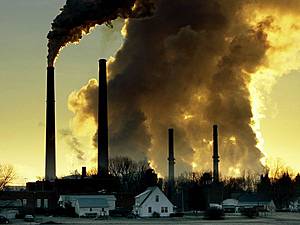RSB Has Developed Air Pollution Control and Air Quality Standards
 Air pollution control, an important tool of human and environment protection
Air pollution control, an important tool of human and environment protectionRecent studies have confirmed that air pollution is becoming a reality in Rwanda especially in the City of Kigali. Though, it is not at a very alarming level as it is in some cities of Africa or Asia, a need to start acting on this issue was deemed important as the problems shows signs to extend.
The Government of Rwanda’s commitment to preserving the air quality and preventing air pollution has led to the adoption of a number of laws and regulations to address the problem of air pollutions; those including the Ministerial Order N°003/16.01 of 15/07/2010 on prevention of activities that pollute the atmosphere, among others.
A study conducted by the Rwanda Environmental Management Authority (REMA) in 2012 identified vehicular emissions as the main driver of this increasing pollution. This is intensified by the fact that some very old vehicles are imported and most of those not meeting the requirements of air emissions.
However, vehicles are not the only agents of the pollution but also other economic activities such as industrial processes, indoor pollution caused by cooking, open burning; just to cite a few make the list. All those activities lead to the degradation of air quality.
Industrial effluents into the air or water bodies can cause environmental pollution when not treated properly prior to exposure. Some of these effluents are toxic and can directly or indirectly endanger the human lives and destroy the environment.
Continued Government efforts to curb the situation include establishing diversified strategies to tackle the issue, including the adoption of laws and regulations that address the problem of air pollutions, and the Prime Minister’s Instructions preventing air pollution caused by vehicular emissions and machines using petroleum products in Rwanda, which were developed and adopted by the cabinet and gazetted in January 2016.
Vehicular emissions control is not sufficient for effective preservation of air quality. Rather, a need to have an integrated and inclusive control of all sources of air pollution, which must start with a regulatory framework that sets the basis for an efficient control of all kinds and sources of pollution is indispensable.
In that collaboration spirit, Rwanda Standards Board developed Standards on air quality and air pollution control. Those standards aim at ensuring that the environment and human life are protected from pollutions from various sources. The standards are intended to list the commonly encountered pollutants in cement factories. They detail the reasons behind emissions and give possible options of mitigation as well as permissible limits of common substances found in polluted air. The set of baseline parameters on air quality and emissions given in the standard are based on a number of considerations so as to come out with practical and acceptable limits.
The following standards were adopted as Rwanda standards to help the country in protection of human lives and environment by mitigating the air pollution:
- EAS750: 2010 for Air quality — Emissions to the air by cement factories — Guidelines,
- EAS 751: 2010 Air quality — Specification and
- EAS 752: 2010 Air quality — Tolerance limits of emission discharged to the air by factories
Development of these standards is an opportunity for beneficiary stakeholders such as industrialists to keep abreast with environmentally friendly technologies. RSB urges industrialists and other concerned stakeholders to make use of and implement requirements of the standards in order to minimize the adverse effects on the environment.
Interested stakeholders can visit RSB website: www.rsb.gov.rw , visit the standards web-portal: portal.rsb.gov.rw/login.php or call 3250 ( toll-free) for more information or assistance.